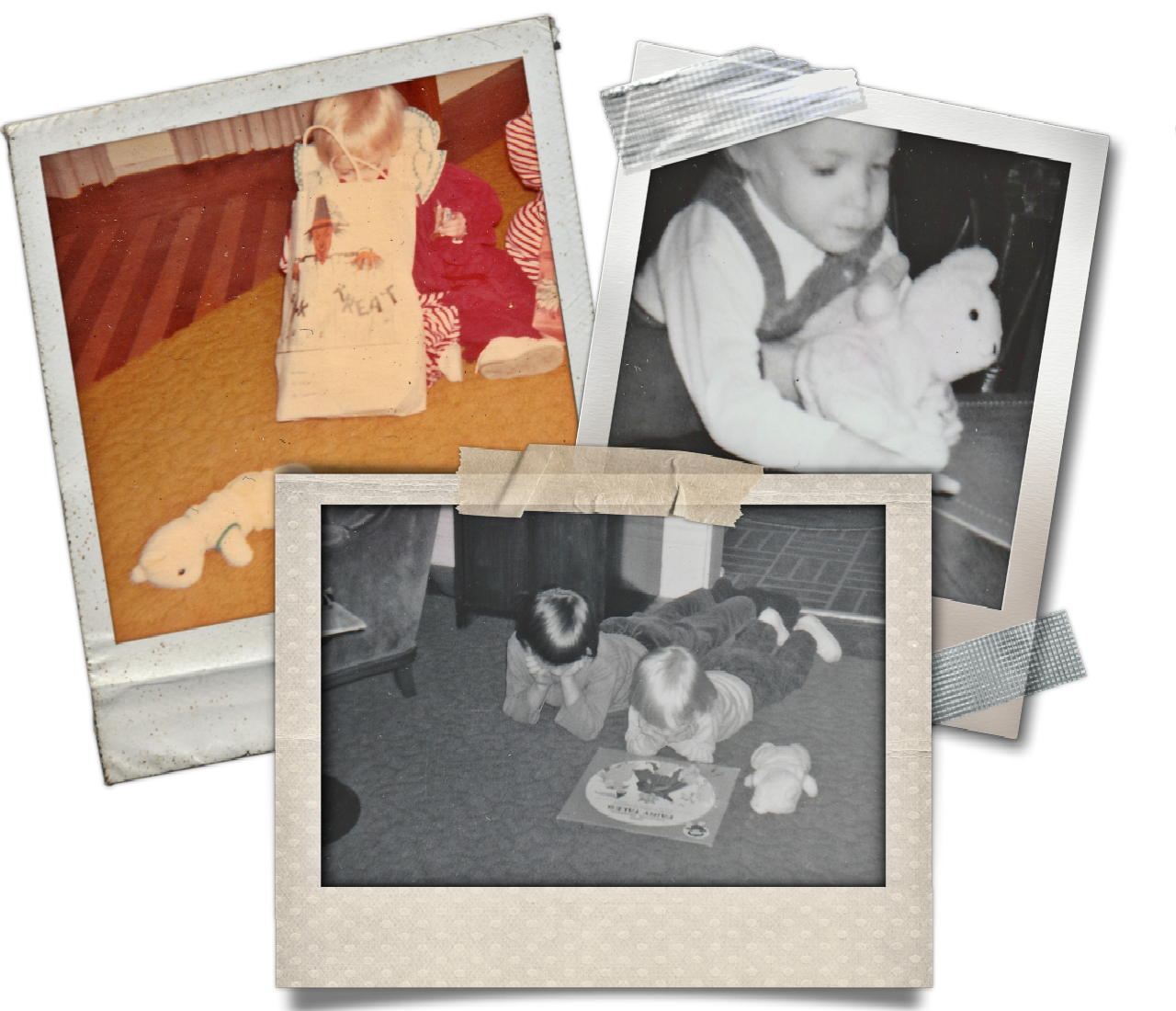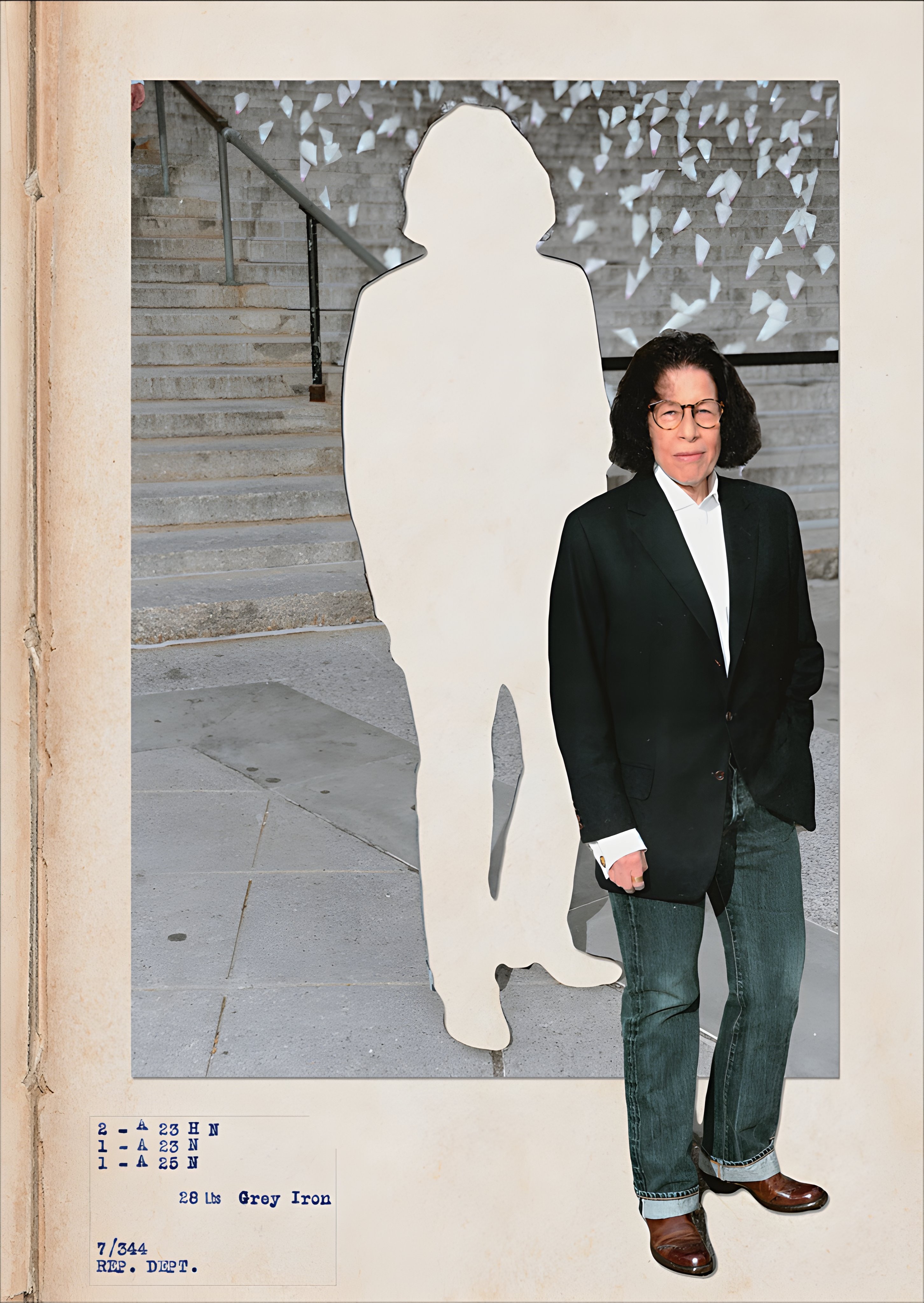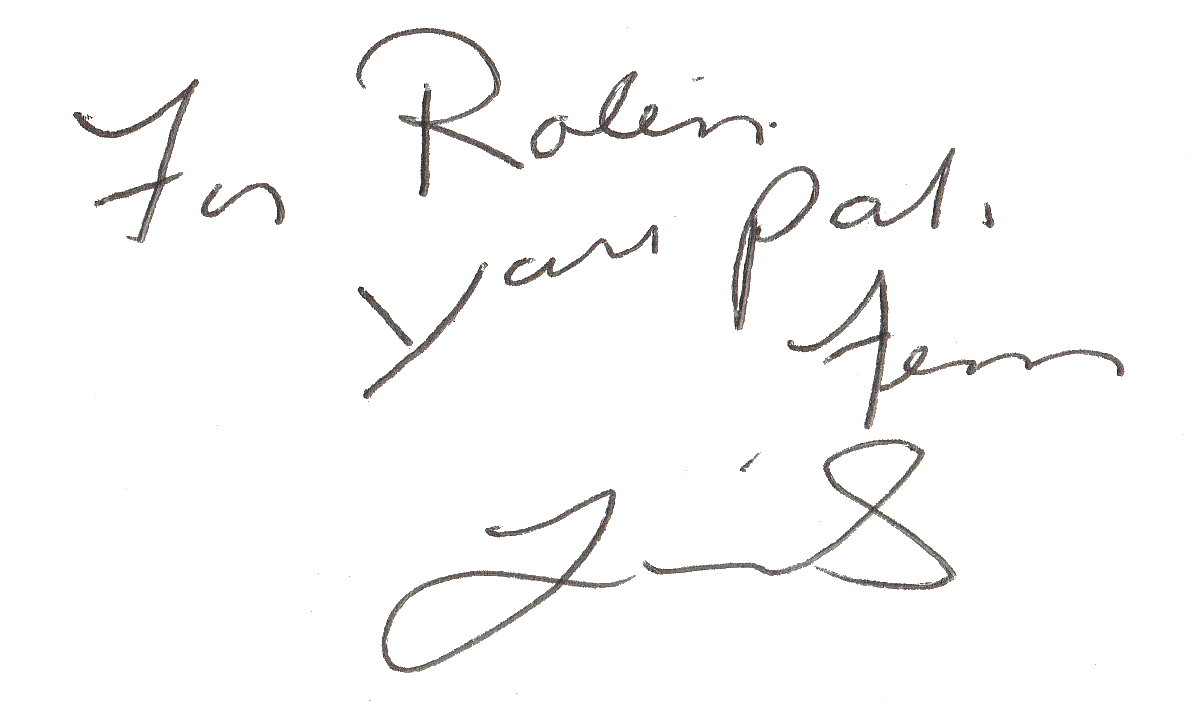"a life cut in two"
a book-lover's struggle to unlock a newly inaccessible past

the need for concrete record: the integral connections between artefact and history
In the afternoon of July 8, 2023 my home was destroyed by a fire.
It was a modest home-- just a two-bedroom apartment-- and I can never be described as a hoarder. My minimalist aesthetic meant that everything accumulated in 58 years of living was thoughtfully curated: a baby blanket, a letter from a former lover, a book with an inscription from my father, the only copy of a play I'd adapted and produced. I'd always said there was no need to keep everything from the past when a few carefully-selected artifacts could stand in for an era.
My libraries, (books, music, movies) were the exception. These things I wanted to painstakingly collect. Of the three mediums, my books were the only library to suffer 100% loss. Like Rose Macaulay, I never created an inventory so, like her, I won't ever remember something is gone until I stumble on a reference by accident. Death by a thousand cuts.
In the early days following the devastation, I reached out to friends and acquaintances with the news. The reactions were of concern, sorrow and a desire to help if possible. I only got one "things can be replaced; you'll always have your memories" comment. I was disheartened by this remark not becasue I was hurt-- I know for a fact the person is kind and loving-- I just feel that it's untrue.
We're given mixed messages regarding material things. From birth, we (the consumer) are actively "sold to" and told that each new acquisition will bring rich meaning to our life. We voluntarily imbue them with great significance particularly when the item is the only tangible connection we have to a precious memory. However, if possessions are taken away, (and taken away without our permission ) we're told to dismiss them without another thought.
I write this section just days from the one-year anniversary of my holocaust. Already, I've received indirect cues from those around me that they've moved on and the unspoken assumption is that I have too. I can honestly say that my accomplishments during the past year prove I've propelled myself forward. I am nowhere near mawkish. However, I still actively grapple with the idea of the "newly inaccessible past." This pain won't leave anytime soon.
As always, I turn to humanist solace and I have begun to find it. Before I'd even moved into a temporary apartment, I re-bought the copy of A Gentleman in Moscow by Amor Towles and read his arresting description of the relationship most of us have to our "stuff." This week, I was introduced to the griefs of Dame Rose Macaulay. Through these and hopefully more voices, I'll come to some kind of terms with the unimaginable.
Sunday, June 30, 2024

experience is less likely to teach us how to bid our dearest possessions adieu
In A Gentleman in Moscow by Amor Towles, Count Rostov displays an ability to shut the door on most of his life's possessions with a greater stoic acceptance than I. But his insight into how we really feel about our belongings reflects an accurate truth."Tis a funny thing, reflected the Count as he stood ready to abandon his suite. From the earliest age, we must learn to say good-bye to friends and family. We see our parents and siblings off at the station; we visit cousins, attend schools, join the regiment; we marry, or travel abroad. It is part of the human experience that we are constantly gripping a good fellow by the shoulders and wishing him well, taking comfort from the notion that we will hear word of him soon enough.But experience is less likely to teach us how to bid our dearest possessions adieu. And if it were to? We wouldn't welcome the education. For eventually, we come to hold our dearest possessions more closely than we hold our friends. We carry them from place to place, often at considerable expense and inconvenience; we dust and polish their surfaces and reprimand children for playing too roughly in their vicinity - all the while, allowing memories to invest them with greater and greater importance. This armoire, we are prone to recall, is the very one in which we hid as a boy; and it was these silver candelabra that lined our table on Christmas Eve; and it was with this handkerchief that she once dried her tears, et cetera, et cetera. Until we imagine that these carefully preserved possessions might give us genuine solace in the face of a lost companion.
But, of course, a thing is just a thing.
And so, slipping his sister's scissors into his pocket, the Count looked once more at what heirlooms remained and then expunged them from his heartache forever."

on his small shoulders a childhood rests
Dee Dee Bear has always been credited as my first stuffed animal, although photographic evidence suggests otherwise. Despite this, Dee Dee holds the distinction of being the one I kept for posterity and considered my first. He had a very "Toy Story" life. There are surviving photos of Dee Dee and me from '67/'68, where Dee Dee appears carelessly discarded, face down. When I became an adult, he arguably got treated worse-- stuffed into a bag with a few other animals and left on the top shelf of a storage unit to bake in the unairconditioned heat.A couple of years before the fire, I started thinking about his age and fragility and felt guilty. I brought him into the apartment, wrapped him in plastic (probably not the best idea, generally speaking), and put him in the bottom drawer of a dresser. I was waiting for the day when I could move into a place big enough for a guest room, where I planned to display him. Ironically, the plastic perhaps helped save him.
 When the removal crew went back into the apartment to salvage items (I was never allowed back in,) they asked what things to look for in the piles of devastation. It's important to remember that I was still in shock by this time. I'd only just returned to my job and getting a call in the middle of a workday to ask me to mentally sift through 58 years of living and give them an instant list of the tangible evidence of my life is almost impossible. An artifact of my father's came to mind because I'd been reminded of it two days previously. I told them to look for that. As luck would have it, Dee Dee was right beside it in the drawer, so I remembered to ask for him as well.
When the removal crew went back into the apartment to salvage items (I was never allowed back in,) they asked what things to look for in the piles of devastation. It's important to remember that I was still in shock by this time. I'd only just returned to my job and getting a call in the middle of a workday to ask me to mentally sift through 58 years of living and give them an instant list of the tangible evidence of my life is almost impossible. An artifact of my father's came to mind because I'd been reminded of it two days previously. I told them to look for that. As luck would have it, Dee Dee was right beside it in the drawer, so I remembered to ask for him as well.
A couple of weeks later, the crew arrived at my temporary lodging with only ten boxes of rescued items (seven of which consisted of kitchenware.) My heart sank, thinking they hadn't recovered anything of real value.** I had almost given up hope as I opened the final box to see-- somewhat carelessly lying on top of pots and pans-- Dee Dee, freshly bathed and looking better than he had in decades.
Lifting him out of the box was the first time I cried. I opened the floodgates and just rocked him while I sobbed. He was it. He was the remainder of my juvenescence. I remember saying to a friend, "On his small shoulders a childhood rests." She replied, "I think he'll carry that load."
** In fairness ICC Restoration & Cleaning Services, they did manage to save 60% of my music/movie collection which involved a massive cleaning effort. I am genuinely and forever grateful to them for that. However, their focus on the practical meant that the laminated artifacts of my father's life and career that were stored in a closed, plastic tub got tossed without thought. That... I don't think I'll ever get over that.
![[© AI-TNP] [© AI-TNP]](http://rjohnson.thenewplace.org/images/reading-quote.png)
Rose Macaulay
Dame Rose Macaulay (1881 - 1958) was a British novelist, poet, historian, journalist, literary critic, anthologist, travel writer, and broadcaster who was known for her caustic wit, satirical comedy, and, in late life, for her religious quest. Her devastation following the total destruction of her home by German bombs (May, 1941) had a profound effect on her. She wrote only one short story during the duration of WWII, the largely autobiographical "Miss Anstruther's Letters." Many writers have explored her haunted remembrance of her loss.The Splendid and the Vile, by Erik Larson (Published by Crown)
"It left some 12,000 people without homes, among them the novelist Rose Macaulay, who returned to her flat on Sunday morning to find that it had been destroyed by fire, along with everything she had accumulated in the course of her lifetime, including letters from her terminally ill lover, a novel in progress, all her clothes, and all her books. It was the loss of the books that she grieved above all.
'I keep thinking of one thing I loved after another, with a fresh stab,' she wrote to a friend. 'I wish I could go abroad and stay there, then I shouldn't miss my things so much, but it can't be. I loved my books so much, and can never replace them.' Among the lost was a collection of volumes published in the seventeenth century-"my Aubrey, my Pliny, my Topsell, Sylvester, Drayton, all the poets - lots of lovely queer unknown writers, too.' She also lost her collection of rare Baedekers ('and anyhow travel is over, like one's books and the rest of civilization'), but the single loss that caused her the greatest sorrow was her Oxford English Dictionary. As she probed the ruins of her home, she found a charred [scrap] from the H's. She also exhumed a page from her edition of the famed seventeenth-century diary kept by Samuel Pepys. She made an inventory of the books, at least those she could remember. It was, she wrote in a later essay, 'the saddest list; perhaps one should not make it.' Now and then an overlooked title would come to mind, like the familiar gesture of a lost loved one. 'One keeps on remembering some odd little book that one had; one can't list them all, and it is best to forget them now that they are ashes.'"
memory itself incinerated
I think the reason I internally pushed back on my friend's "you'll always have your memories" reassurance is that it is demonstrably untrue. For example, in preparing to post the above section concerning Dee Dee Bear, I discovered from childhood photographs that he is in fact not the first stuffed animal I was given in childhood despite the claim I made for years. Macaulay explores this idea of the imprecise nature of memory, as discussed by K.L. Anderson."A Horrid, Malicious, Bloody Flame: Elegy, Irony and Rose Macaulay's Blitzed London" by K.L. Anderson (Literary London Society)
"...Unsurprisingly, Macaulay's own wartime experience informed her works' pessimism immensely, particularly the death of her married lover and, more publicly, the 1941 bombing of her flat. The ensuing fire destroyed all of her books and personal correspondence-- all, that is, that she deemed tangible of her personal history. 'Forgive this dislocated scrawl,' she wrote to friend Daniel George. 'I now have nothing. I came up last night... to find Lux[borough] House no more -- bombed and burned out of existence, and nothing saved. I am bookless, homeless, sans everything but my eyes to weep with... I have no O[xford] D[ictionary] ... No nothing ... It would have been less trouble to have been bombed myself.' This same anguish reappears in 'Miss Anstruther's Letters' (1942), Macaulay's only short story of the war ('unoriginal, but veracious, mainly,' she deems it). Miss Anstruther, who has lost all of her lover's correspondence in a Blitz fire, finds memory itself incinerated: she recovers one shard of a letter, and from that reconstructs a wholly inaccurate, tragic version of her twenty-year affair. Tearing through the charcoals of her collapsed building, Miss Anstruther becomes a 'revenant', a subordinated haunter of a bygone existence, desperately pawing through the rubble in search of a Rosetta stone with which to unlock a newly inaccessible past. It is a deeply personal story: out of Macaulay's physical losses arose a need for concrete record, and the integral connections between artefact and history and between place and memory haunted her perpetually.
The Fran Lebowitz Solution
 As I approach the year-and-a-half-after-the-fire mark I'm making good progress on replacing the technically irreplaceable but also choosing the things that will remain permanently lost. Despite being surprisingly upbeat and circumspect, I can still be brought up short by those who feel compelled to give me unsolicited advice about what is worth my time and effort to rebuild. (Not entirely coincidental -- all the people who tsk-tsk about rebuilding my physical media library are of traditional retirement age and in the process of transitioning from a life of house-owning and child- raising. They seem to see "streamlining" as a moral superiority. None of them seem to realize that choosing to downsize over a period of months is a bit different than having everything ripped from you in less than an hour.)
As I approach the year-and-a-half-after-the-fire mark I'm making good progress on replacing the technically irreplaceable but also choosing the things that will remain permanently lost. Despite being surprisingly upbeat and circumspect, I can still be brought up short by those who feel compelled to give me unsolicited advice about what is worth my time and effort to rebuild. (Not entirely coincidental -- all the people who tsk-tsk about rebuilding my physical media library are of traditional retirement age and in the process of transitioning from a life of house-owning and child- raising. They seem to see "streamlining" as a moral superiority. None of them seem to realize that choosing to downsize over a period of months is a bit different than having everything ripped from you in less than an hour.)
So, I cherish those times when I come across a genuine book-lover or collector of physical media. These are my people. And on November 15, 2024 I got to meet Fran Lebowitz after seeing her in An Evening with Fran Lebowitz at the Fitzgerald Theater in St. Paul.
"Bless your book collection, Fran," I began. (I grew up in a staunchly agnostic family but we still use the word "bless" to convey a deep gratitude.) I then went on to say that I'd had a book collection too but it was destroyed in a fire and that I share her deep devotion to books.
"You know, I've thought about my own collection," she replied. "It occurred to me that my apartment is nothing but wood and paper." I seem to remember her saying that in the Scorsese documentary.
She then proceeded to shoot at me a series of rapid-fire, very Fran-like questions--- was the whole building destroyed, was anyone hurt--- and finally--- who did it.
"A belligerent teenager," I replied using my stock response. She asked for clarification and I gave it to her. She asked if the teen had been caught- "Yes, the video I took helped lead the investigators to her."
"Good," Fran replied succinctly. "She'll go to jail where she belongs."
"I doubt it," I opined. "But she'll have a felony conviction that will dog her for the rest of her life."
Fran gestured to me conspiratorially to come closer. I leaned nearer and she said, "Don't tell anyone I said this, but...
kill her."
Instantly realizing I'd been gifted with a sublime exit line from the heir to Dorothy Parker herself, (not to mention gaining a philosophical soulmate,) I straightened up and walked from the table, laughing my head off.

I thank Fran Lebowitz for spicing my life with an utterly New York reaction to my plight and another opportunity to find humor amid the destruction. For every bit of Midwest sympathy and shared grief that I genuinely value, I'm convinced that I also need a bit of Fran's semi-indifference, no-nonsense judgment and spot-on comedic timing.
![[© AI-TNP] [© AI-TNP]](http://rjohnson.thenewplace.org/images/library.jpg)
The Favorites
While I will never be able to remember everything I lost, I was able to put down the favorites, the books that made the biggest impact on me. The following sections serve as a wish list. I will indicate the volumes that have been replaced as they come in. Donations are welcome.
|
|
Regional Cultures of North America, by Colin Woodward |
![[© AI-TNP] [© AI-TNP]](http://rjohnson.thenewplace.org/images/library2.jpg)
Claire Van Zant's Humanities Series Reading List
I got digital copies of Claire Van Zant's Humanities material in under-the-wire and had started the process of re-reading her assigned books 40+ years after the fact. I'd love to have a well-appointed home and nothing says "well-appointed" like Van Zant-approved reading material on the shelves.
|
by Edwin Fenton and John M. Good PURCHASED Dr. Faustus by Christopher Marlowe The Duchess of Malfi by John Webster |
A Man For All Seasons by Robert Bolt From Atheism to Christianity: The Story of C. S. Lewis by Joel Heck The Adding Machine by Elmer Rice The Stranger by Albert Camus Old Goriot by Honore de Balzac Eugenie Grandet by Honore de Balzac Hard Times by Charles Dickens Ulysses by James Joyce |
![[© AI-TNP] [© AI-TNP]](http://rjohnson.thenewplace.org/images/scripts.jpg)
My Scripts
Many scripts from my CV are either original adaptations, musical books held under publisher lock-and-key or just old stuff too obscure to be found. However, I tracked down the ones that are available and they are listed here. Of all my books, these were the toughest to lose since they were all working copies, covered with notes, blocking and the occasional editorial joke. The single most tragic loss was my script Senses and Sorrows, the original stage adaptation of the writing of Elizabeth Custer. It was the only copy in existance.Don't believe 'em when they say "stuff" can be replaced.

|
Harvey by Mary Chase Lo and Behold! by John Patrick Arsenic and Old Lace by Joseph Kesselring Dear Ruth by Norman Krasna The Odd Couple (female version) by Neil Simon |
Out of Sight, Out of Murder by Fred Carmichael Later Life by A. R. Gurney Chamber Music by Arthur Kopit Ah, Wilderness! by Eugene O'Neill Suddenly, Last Summer by Tennesee Williams The Hot l Baltimore by Lanford Wilson Postmortem by Ken Ludwig |